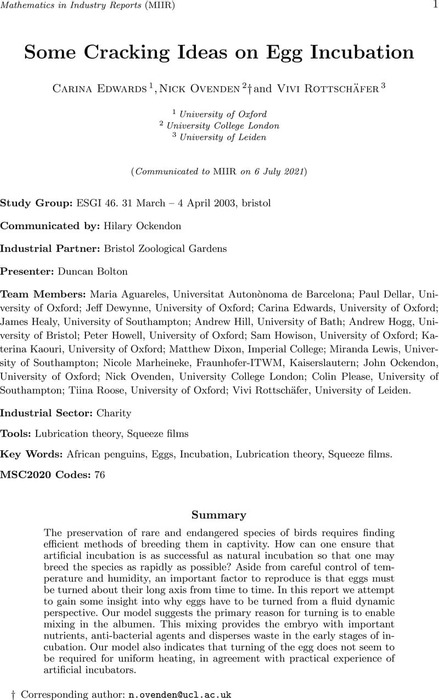Abstract
This problem was posed by Bristol Zoological Gardens and investigated during the 46th European Study Group with Industry 2003 at the University of Bristol. Bristol Zoo looks after rare and endangered species of birds and the Zoo is interested in finding efficient ways of breeding them in captivity. Their motivation was to ensure that artificial incubation is as successful as natural incubation so that one may breed the species as rapidly as possible
An examination of the egg turning from a fluid dynamics perspective is presented here that suggests the primary reason for turning is to enable mixing in the albumen. This mixing provides the embryo with important nutrients, anti-bacterial agents and disperses waste in the early stages of incubation. Our model also indicates that turning of the egg does not seem to be required for uniform heating, in agreement with practical experience of artificial incubators.
Content






